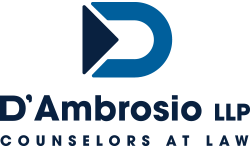Upon death, assets held in the decedent’s name (e.g., bank accounts, investment accounts, real estate) will be unavailable to family or anyone else until a probate case is commenced and a Personal Representative (someone who is typically nominated in a decedent’s Will) is appointed by the local probate court. The Personal Representative (previously known as the Executor) administers the decedent’s estate. As part of this judicial proceeding, the court will either approve the will of the decedent as being the most-recent and properly executed will, or the court will certify that the decedent died without a will, in which case state law prescribes how certain family members will share in the estate.
The above-described “probate process” is generally not onerous, but with the onset of COVID related delays, we advise that the process be avoided when possible.
Some assets avoid probate because they are not owned in the decedent’s name at the time of death, or they transfer automatically at the time of death. A few examples of these types of assets are:
- Assets (e.g., real estate or financial accounts) owned as joint tenants with right of survivorship or “tenants by the entirety.”
- Assets that come with a beneficiary designation such as life insurance benefits, retirement plan benefits, bank accounts with a payable-on-death (POD) feature, and investment accounts with a transfer-on-death (TOD) election.
- Any asset titled in the name of the decedent’s revocable trust during the decedent’s life—the trust will contain all of the provisions governing how assets will pass upon the decedent’s death.
A person determined to avoid the delay and expense of the probate process at death can make use of joint ownership with right of survivorship and beneficiary designation forms. And, for assets that will not be jointly owned and that do not come with the feature of a beneficiary designation form, ownership of such assets can be transferred during the person’s lifetime to a revocable trust.
If a Massachusetts resident owns real property outside of Massachusetts, they should consider transferring the property to a revocable trust in order to avoid the need for a second probate (“ancillary probate”) in that other jurisdiction.
An individual funding a revocable trust usually does not lose control, as that individual usually serves as the trustee of the trust and still controls the asset; and in any event, the individual retains the right to revoke the trust and take back personal ownership of the trust assets.
However, funding a revocable trust generally does not remove trust assets from exposure to creditors. Similarly, funding a revocable trust does not remove trust assets from exposure to estate taxes upon death. To this end, even when a decedent’s estate avoids probate, there are still post-death administrative tasks to complete. Please feel free to contact me with any questions.
HOW CAN WE HELP?
Your team of lawyers at D’Ambrosio are here to work with and for you, every step of the way.



